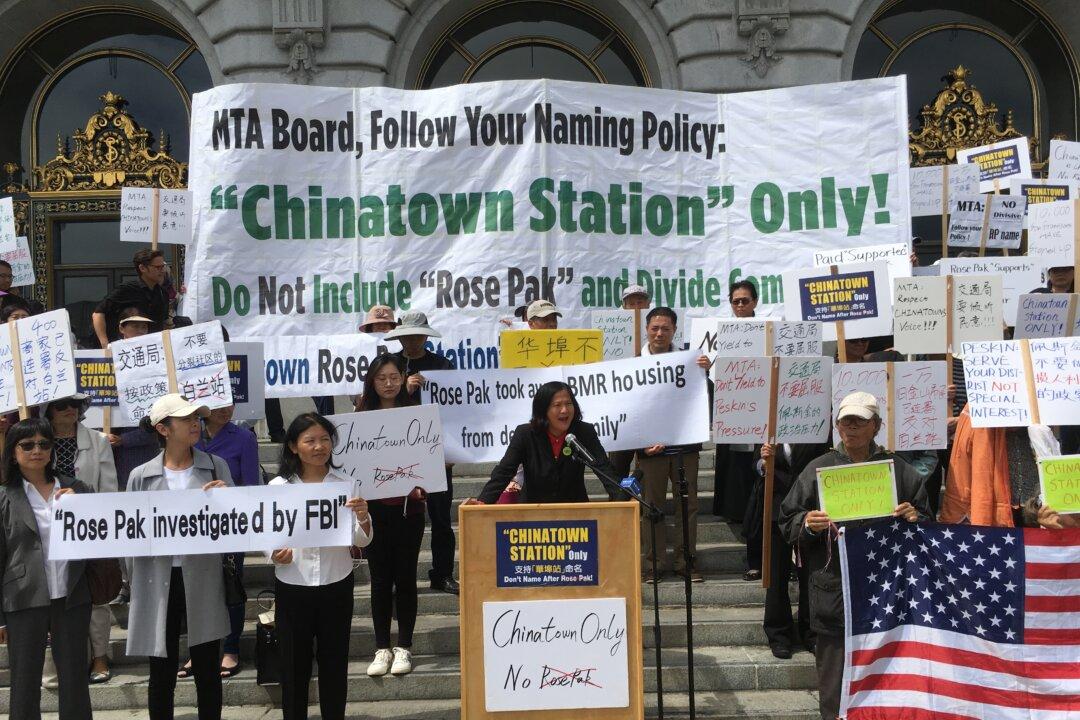Commentary
The San Francisco Municipal Transportation Agency (SFMTA) board narrowly passed a resolution on Aug. 20 to name the city’s new Chinatown subway station “Chinatown-Rose Pak Station.”

The San Francisco Municipal Transportation Agency (SFMTA) board narrowly passed a resolution on Aug. 20 to name the city’s new Chinatown subway station “Chinatown-Rose Pak Station.”